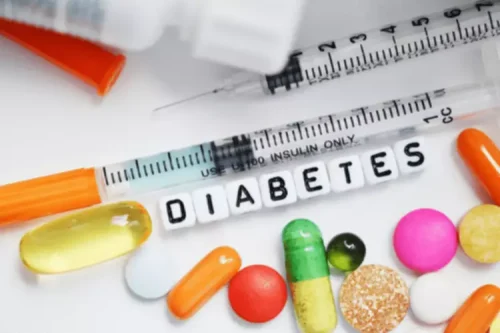How Alcohol Affects Your Kidney Health

As the rate of glucose breakdown increases, profound hypophosphatemia potentially can result. Low blood levels of phosphate commonly occur acutely in hospitalized alcoholic patients, appearing in more than one-half of severe alcoholism cases. The kidney tubules play an important role in keeping the body’s water and electrolyte levels in equilibrium. In many cases, control mechanisms govern the rate of reabsorption or secretion in response to the body’s fluctuating needs (see table for a summary of the body processes influenced by key electrolytes). Under the influence of antidiuretic hormone (ADH), for example, the tubules can create either a concentrated urine, to discharge excess solutes and conserve water, or a dilute urine, to remove extra water from body fluids. In the absence of ADH, when body fluids are overly dilute, the kidneys dilute the urine, allowing more water to leave the body.
Understanding the Risks of Smoking and Kidney Disease

One of the primary long-term effects is the development of alcohol-induced kidney disease (12). This condition is characterized by inflammation and scarring on the kidney (13). If you do choose to drink alcohol, limit your intake to no more than one to two drinks per day. A drink how alcohol affects the kidneys in this instance is equivalent to a 5 oz glass of wine, 12 oz beer, or a single shot (1.5 oz) of 80-proof hard liquor. If you feel a sharp stabbing pain or a dull ache in your back under the ribcage when you drink alcohol, it’s possible that it’s your kidneys or a kidney stone.

Alcohol Intake and Prevalent Kidney Stone: The National Health and Nutrition Examination Survey 2007-2018
In contrast, some studies find that heavy alcohol consumption may predict poorer outcome in patients with chronic kidney diseases (Kronborg et al. 2008; Shankar et al. 2006; White et al. 2009). For example, White and colleagues (2009) reported that heavier drinkers (those consuming more than 30 g of alcohol/week) were at higher risk of incident albuminuria, which is typically a symptom of kidney disease. Japanese (Yamagata et al. 2007) and Italian (Buja et al. 2011) cohort studies revealed a U-shaped association between alcohol consumption and incidence of proteinuria.
- Your doctor may prescribe proton pump inhibitors or H2 antagonists to reduce the production of stomach acid.
- Follow a low-fat, healthy diet that has plenty of fresh fruits and vegetables.
- As for the kidney damage caused by alcohol, some studies discovered that the patients’ renal function recovered after abstinence [1].
- The follow-up duration began since the interview date and censored on the date of incident CKD, death, or Dec 31, 2013, which ever come first.
How kidneys recover from alcohol damage
Evidence also exists that alcohol-related damage to the liver, in particular advanced liver cirrhosis, leads to hepatorenal syndrome (HRS)—a deterioration in renal function related to impaired circulation. The underlying mechanisms involved in the development and progression of HRS are incompletely understood, although it is plausible that the altered balance between vasoconstrictor and vasodilator factors plays a significant role (Lenz 2005). Patients with alcohol-induced liver cirrhosis show a great tendency to retain salt (i.e., sodium chloride), and their urine frequently is virtually free of sodium. A progressive accumulation of extracellular fluid results, and this excess fluid is sequestered primarily in the abdominal region, where it manifests as marked swelling (i.e., ascites) (see figure). In addition, excess fluid accumulates in spaces between cells, clinically manifested as swelling (i.e., edema) of the lower back and legs. As long as cirrhotic patients remain unable to excrete sodium, they will continue to retain the sodium they consume in their diet.
- Therefore, the effect of ethanol on renal antioxidant capacity varies with the concentration of ethanol and the duration of stimulation.
- In addition to their role in regulating the body’s fluid composition, the kidneys produce hormones that influence a host of physiological processes, including blood pressure regulation, red blood cell production, and calcium metabolism.
- However, others also found that abstinence cannot completely repair the kidney injury [26].
- For people with kidney disease who are having dialysis or on a low-potassium and/or low-phosphate diet, alcohol can be particularly challenging.
- While alcohol is mainly metabolized by the liver, some of these substances are released through the kidneys.

It’s important to note that refraining from alcohol is preferable for overall health and well-being. Over time, alcohol can damage the kidneys, according to the National Kidney Foundation. So, if you drink alcohol, especially often, the kidneys must work harder to return your blood to its usual state. The function of the kidneys in the body is to filter harmful substances out of the body. While alcohol is mainly metabolized by the liver, some of these substances are released through the kidneys.
- 2The terms “alcoholic patient” and “alcoholism” as used in this article are summary terms for the diagnoses of alcohol abuse and alcohol dependence as defined variously by the studies cited.
- In fact, IgA glomerulonephritis—acute inflammation of the kidney caused by an IgA immune response—is one of the most common types of primary glomerulonephritis worldwide (D’Amico 1987).
- The trillions of microbes in your colon and large and small intestines are critical to proper digestion.
- Nevertheless, before rats received large doses of ethanol in their drinking water, they had a 3-week transition period with low concentrations of ethanol [37].
- Many patients with CKD often have other comorbidities, such as diabetes, coronary heart disease, stroke, and other serious chronic diseases.
Furthermore, certain compounds found in beer, such as d-amino acids (DAAs), might contribute to elevated uric acid levels in the blood, which can negatively affect kidney function (23). However, if the damage is detected https://ecosoberhouse.com/ early and alcohol consumption is stopped, the kidneys may gradually recover and regain their partial or full function (4, 19). Long-term alcohol use can have significant and lasting effects on the kidneys.
- At that stage, the kidneys have moderate damage and are not functioning at full capacity.
- Unfortunately, existing clinical studies have not analyzed why some patients with CKD give up drinking and the influence of giving up drinking on the prognosis of these patients.
- Binge drinking, or drinking numerous drinks in just a few hours, can cause an acute kidney injury.
- Some sources state that excessive drinking may cause acute kidney injury, and there may be a link between regular heavy drinking and chronic kidney disease.
- Hepatorenal syndrome, which is secondary to alcoholic hepatitis [65], and acute kidney injury, secondary to rhabdomyolysis, also cannot be ignored [46].
Study participants and data collection

Our website services,content, and products are for informational purposes only. Certain foods, such as beets, blackberries, and fava beans, may cause your urine to turn red. It’s essential to be attentive and seek medical help if you observe any such symptoms, especially changes in your urine. If you have CKD, you may eventually require dialysis or a kidney transplant.
What Are 3 P’s of Diabetes? Definitions, Prevention, and Treatment
Laube and colleagues (1967) suggested that both cellular enlargement and cell proliferation contribute to such nephromegaly. In alcoholic patients with cirrhosis, these investigators reported a 33-percent increase in kidney weight, whereas they observed no appreciable kidney enlargement in alcoholic patients without cirrhosis compared with control subjects (Laube et al. 1967). Based on the most recent scientific evidence, if you stick to one standard alcohol drink each day (one 1.5-oz shot, one 12-oz. glass of beer or one 5-oz. glass of wine), you do not increase your risk of developing kidney disease. Also, alcohol does not appear to make kidney disease worse or make it more likely that someone with kidney disease will need dialysis. You probably know someone who developed health problems from drinking too much alcohol. Alcohol can impact many different parts of the body, but most commonly it damages the liver and can lead to a condition called cirrhosis.
In this review, we focused on the effect of ethyl alcohol on the kidneys and the effect of drinking on patients with CKD, and summarized the clinical and experimental studies. We analyzed and compared the advantages and disadvantages of alcohol consumption for patients with CKD and the contradictions in existing studies, and we hope to provide some information for clinical decision-making and policy formulation. Heavy drinking can also cause liver disease, which makes your kidneys have to work harder. When you have liver disease, your body doesn’t balance the flow and filtering of blood as well as it should. This has a harmful effect on your overall health and can increase the chance of complications. More than two drinks a day can increase your chance of having high blood pressure.
Treatments for chronic kidney disease
One of the main functions of the kidneys is to regulate both the volume and the composition of body fluid, including electrically charged particles (i.e., ions), such as sodium, potassium, and chloride ions (i.e., electrolytes). However, alcohol’s ability to increase urine volume (i.e., its diuretic effect) alters the body’s fluid level (i.e., hydration state) and produces disturbances in electrolyte concentrations. These effects vary depending on factors such as the amount and duration of drinking, the presence of other diseases, and the drinker’s nutritional status (see table, p. 90). First, many studies are based on patients’ routine health checkups, as annual health examinations do not allow researchers to evaluate any fluctuation in serum creatinine and other biomarkers.

